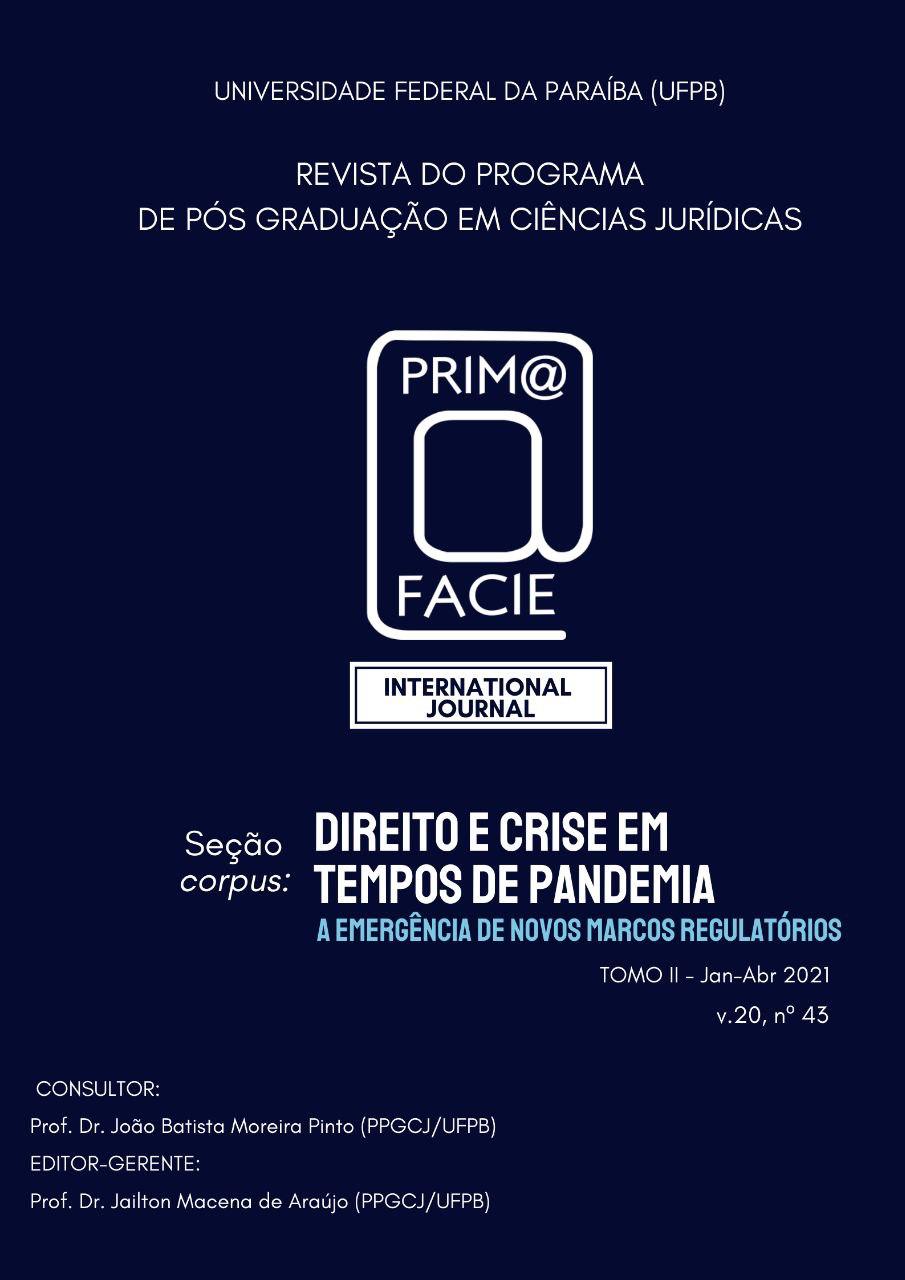Preservation Of Professional Learning Contracts In Times Of Pandemic By Covid-19
DOI:
https://doi.org/10.22478/ufpb.1678-2593.2021v20n43.53789Keywords:
COVID-19, professional learning, public policyAbstract
The paper analyzes the strategies for maintaining professional learning contracts in times of pandemic by COVID-19. Main public policy focused on the first job, the institute provides opportunities for methodical technical and professional training for adolescents and young people, in addition to being a strategy for the eradication of child labor. The public health crisis scenario, resulting from the new Coronavirus, generated recognition of the state of public calamity in March 2020, which caused instability in legal relations and the need for regulatory adaptation. In this context, the applicability of the legal instruments instituted during the health crisis arising from COVID-19 is analyzed, with special emphasis on the hermeneutic analysis of Provisional Measure 926, whose effects ceased with its expiry, and Law n. 14,020, of July 6, 2020, as a result of the conversion of Provisional Measure n. 936, notably regarding the preservation of the adolescent's work in the face of this new reality, through professional learning and qualification in times of pandemic. The research uses the method of inductive approach and presents itself as exploratory as to the objectives, of a qualitative nature and based on bibliographic and documentary procedures. It is concluded that the learning contracts were adjusted to make continuity feasible, but there is a need for more precise regulatory frameworks and attentive to the specificities of the institute, especially regarding the adolescent and the socially vulnerable public.
Downloads
Downloads
Published
How to Cite
Issue
Section
License
Copyright (c) 2021 A Prim@ Facie detém direitos exclusivos de publicação e distribuição sob concessão absolutamente franca da parte do autor, ou autores.

This work is licensed under a Creative Commons Attribution-NonCommercial-NoDerivatives 4.0 International License.
Os autores estão cientes de que transferem seus direitos de publicação e distribuição à revista Prima Facie. Os autores autorizam o uso do trabalho para fins não-comerciais, incluindo direito de enviar o trabalho em bases de dados de Acesso Livre. As provas finais poderão não ser enviadas aos autores antes da publicação, seguindo a revista seu padrão técnico explicitado nas suas normas e nos formatos praticados em acordo com a CAPES e com padrões de excelência adotados. As opiniões emitidas pelos autores são de sua exclusiva responsabilidade não sendo a revista solidária da livre opinião exposta por eles.

